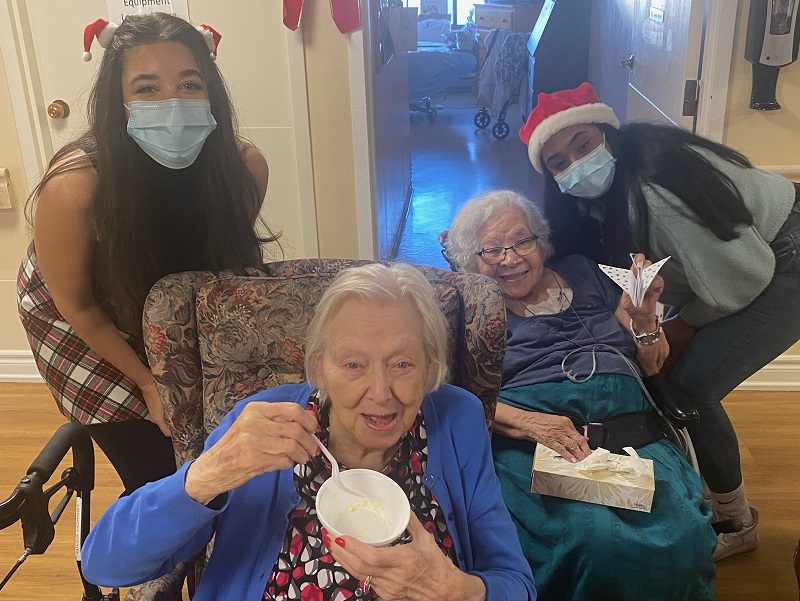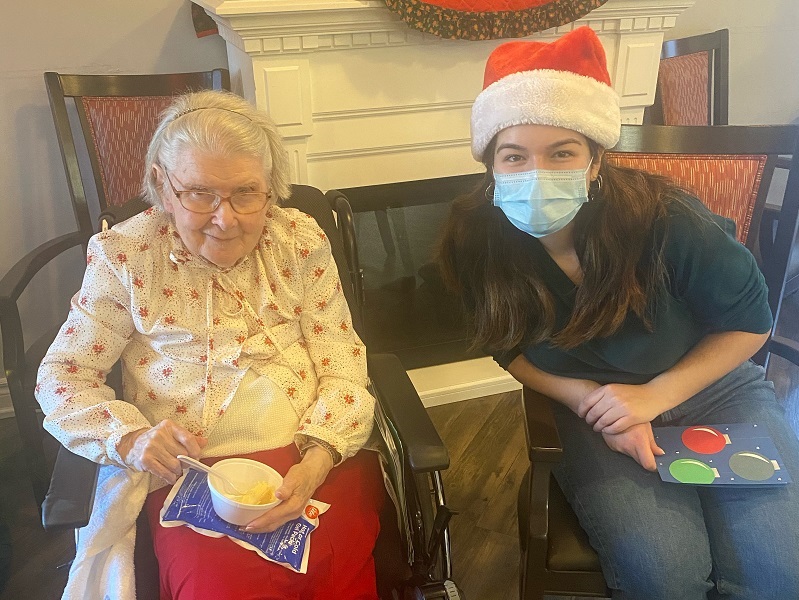The Teri Project
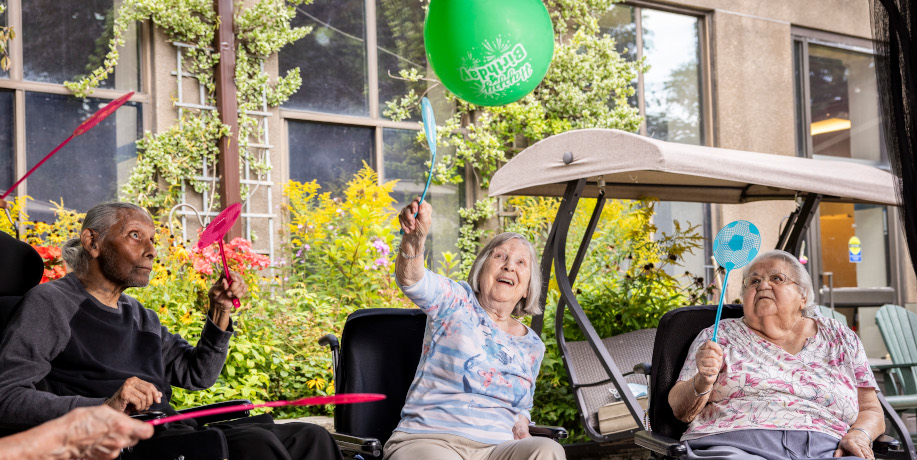
The Teri Project connects Toronto Metropolitan University students with residents of long-term care facilities to build meaningful, intergenerational connections. This project aims to address the pervasive issue of social isolation amongst residents of long-term care homes and to overcome the anonymity of aging in these settings.
The Teri Project addresses the disconnection many elderly people face, while offering a unique educational experience for university students.
By matching students in the Faculty of Community Services (FCS) with residents of long-term care homes for regular visits, the project facilitates intergenerational friendships based on mutual respect, empathy and care.
These learning experiences allow students to gain experience in their field of study, develop skills in relational care and become engaged in social issues. They also gain experience working with vulnerable populations, developing their advocacy skills and contributing to creating social change.
The elderly people that take part in the Teri Project build meaningful social connections; reducing the many negative effects of social isolation.
The Teri Story
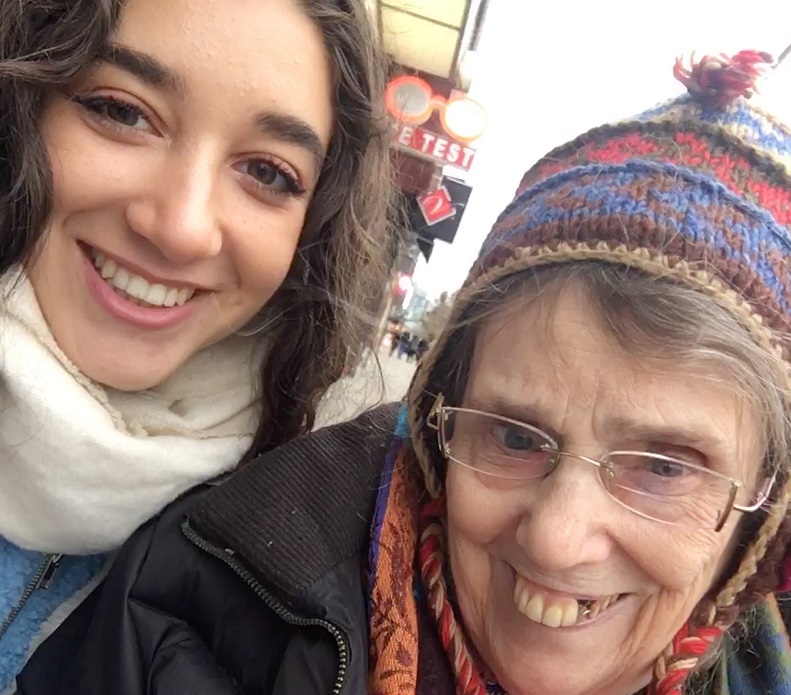
The Teri Project was created in inspiration and honour of the late Teri Truscott. Teri Truscott and Taryn Cicchelli became best friends from meeting each other in the child and youth care (CYC) program at Toronto Metropolitan University University. In her early 70s, Teri was the oldest member of the School of CYC, and the friendship between Teri and Taryn changed their lives forever. The intergenerational pair proved that love, friendship, and genuine care can transcend age. When we nurture these relationships and see people for who they really are, a truly beautiful friendship can last.
Teri was a lifelong learner and always the funniest person in the room. Her luminous spirit, kind heart, and passion for social justice inspired the creation of, and continues to guide the Teri Project.
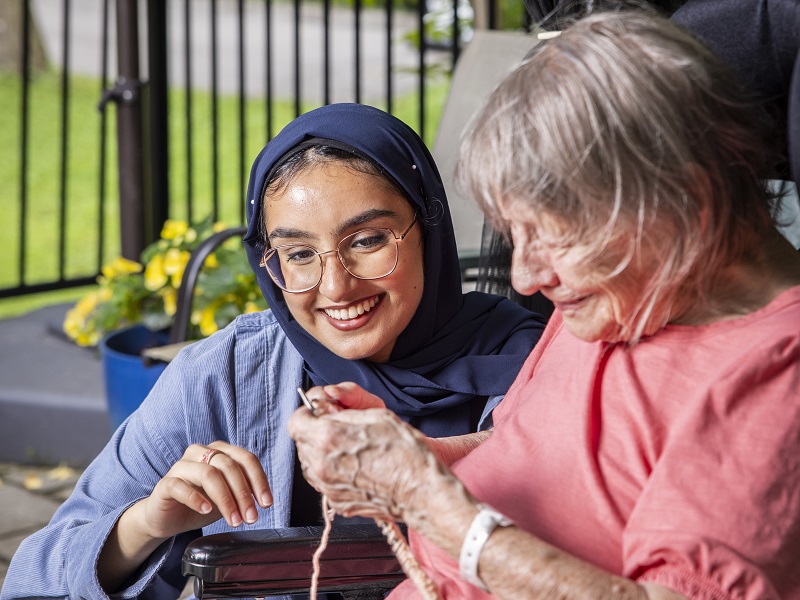
The Teri Project: Students and elderly continue building a legacy of intergenerational friendship
Three years into the program, community members are still sharing, caring and connecting at long-term care homes in Toronto
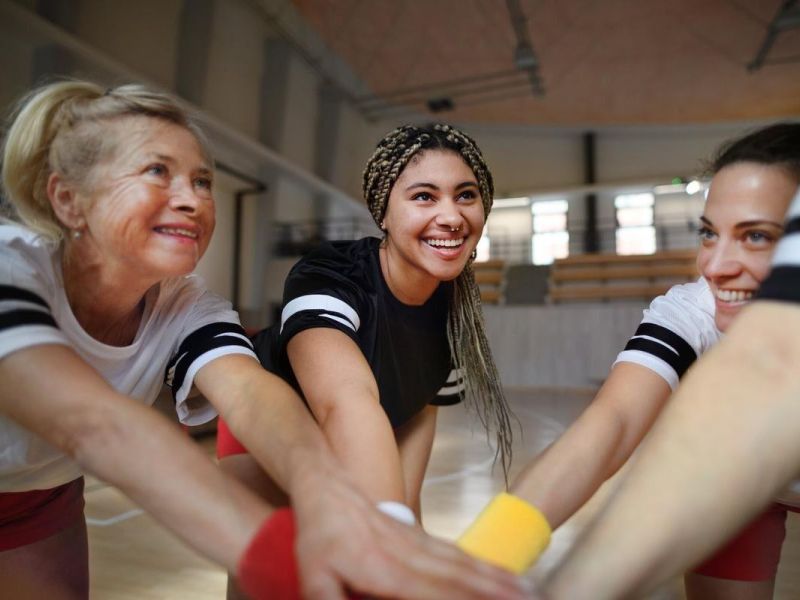
Why people need to ditch ‘age bubbles’ and mingle with other generations (external link) (Toronto Star)
Both old and young can benefit from programs that bring people of different ages together

The Teri Project
New virtual placement initiative seeks to ease loneliness of long-term care residents amid COVID-19 pandemic
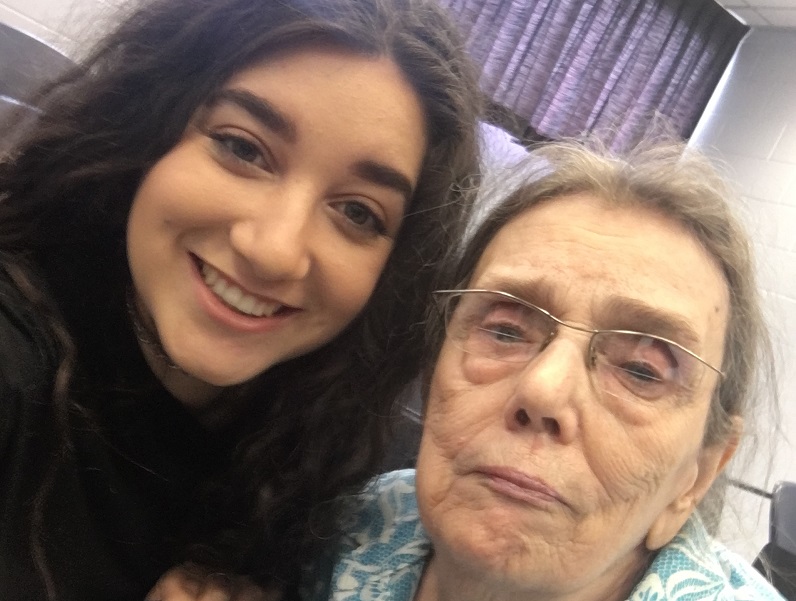
A very special student and her kitty kat (external link) (CYC-Online)
In loving memory of Teri Truscott
Connecting through Art and Stories
The Teri Project uses relational engagement, art and creative activity to uncover and represent the stories and lived experiences of senior citizens.

Students regularly visit residents in long-term care facilities or connect using Zoom, developing the foundation of a trusting and meaningful relationship.
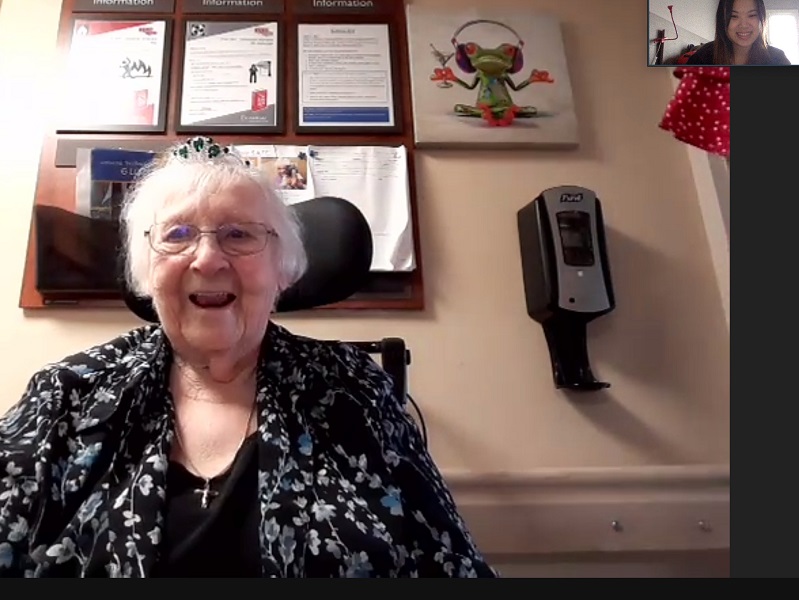
Senior partners reflect on their lived experiences, their triumphs and their challenges, in the form of stories.
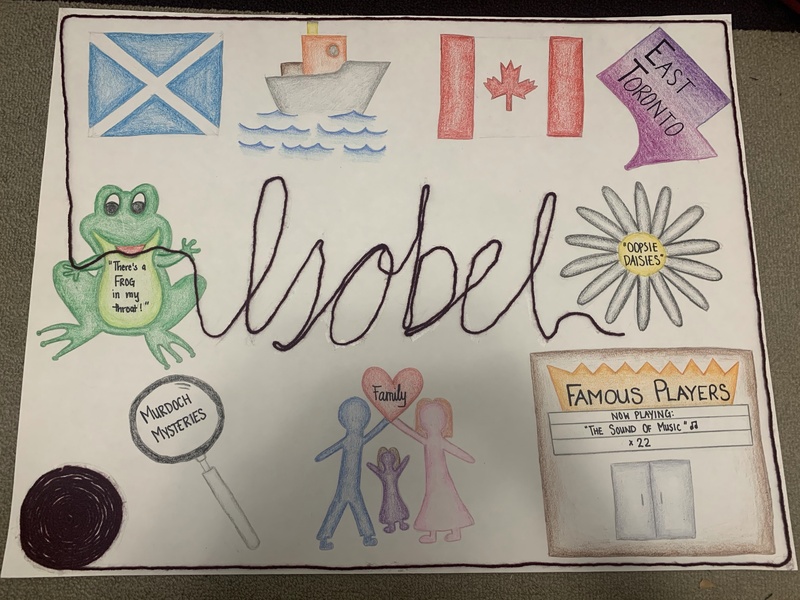
Students make art projects with their senior partners to represent them, their story and the intergenerational relationship.
Get Involved
Students
The Teri Project is open to students in the Faculty of Community Services. By successfully completing your upper-year placement with the Teri Project, you can earn a course credit and gain valuable experience in relational care and community services.
Long-term Care Homes
We are seeking partners in long-term care to help grow the Teri Project! If you are interested in working with us, please contact Taryn Cicchelli, Field Supervisor at taryn.cicchelli@torontomu.ca.
Testimonials
“I enjoy it very much and it is exceptionally genial. We like the same books, pets and we both love to talk and listen. The surprise is we are several years apart. She is 20 and I am 94. We both look forward to meeting every week.” - Long-term care resident
“The experience was transformative! It helped me tap into my secret reservoir of strength, empathy and love. I’m now committed to working with people at the end of their life and finding beauty in seemingly mundane moments." - Student participant
“The students have adapted well to each resident and have gotten to know them personally to create different programs out of our residents’ interests. It has been a wonderful partnership and we can’t wait for the day we can have them meet in person.” - Long-term care staff member
